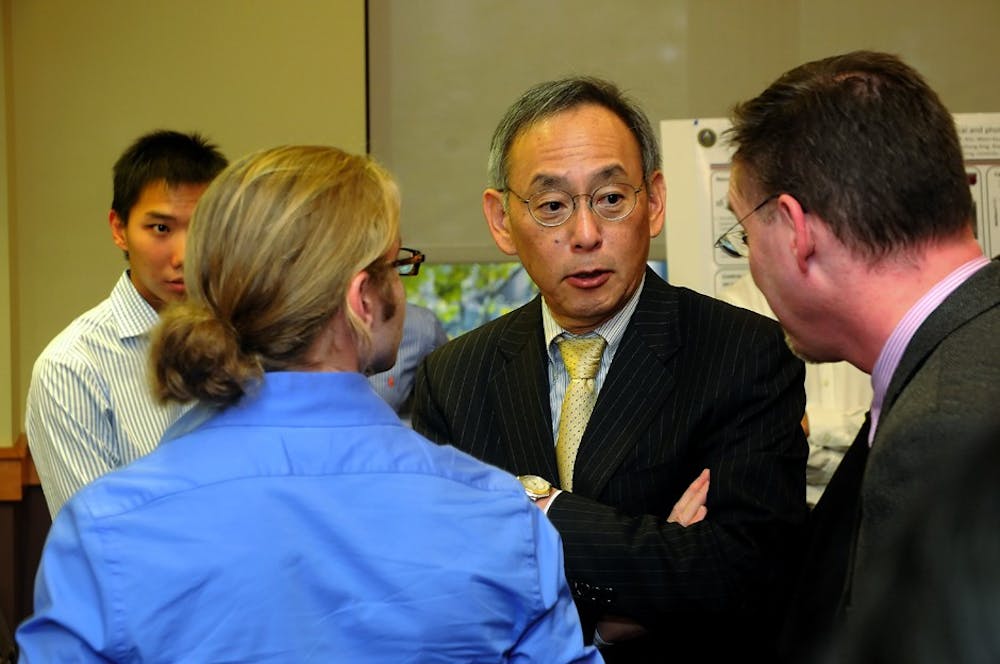
Daily Pennsylvanian: What did you think of the students’ research projects?
Steven Chu: I think it’s very exciting. The most exciting part, of course, is the fact that many, many students are getting interested in this incredibly important part of technology development, which I think there will be a huge market for.
DP: How do you balance the politics of your job with academia?
SC: I come from a world where information matters, science matters, rational thinking matters. When I try to convince people of things or get things to happen, I use that. For a lot of people, by just giving them information that they previously did not know, that goes a long way. I think my reputation in Washington is one that is not politically motivated … but the fact that I am technically trained, that I spend a lot of time in these areas, sort of matters [to people]. I think a lot of people look at me as a resource.
RELATED: Stephen Chu speaks at Penn
DP: How do you mobilize people to be more energy-conscious?
SC: It saves money immediately and people notice this. The climates that see the most sun, they … have actually discovered this all on their own. It mostly saves on the air conditioning bills. All sorts of the people come up to me and say, “Wow, it really works!”
DP: What advice would you give students pursuing science careers?
SC: Students should do what they’re really interested in and what they feel passionate about. [The world is somewhere] where hard work does really matter. If you want to excel in sports, there are very few people that are so natural they don’t have to practice. Usually, if you go higher and higher in the pecking order, you find that the people who really excel actually work hardest at it. Of course, those people have natural talent, but nevertheless, talent alone won’t get you there. That’s also true in a lot of technical areas. It’s true for science and engineering where innate talent gets you [somewhere], but unless you’re willing to work and do all of the stuff, including the ‘calisthenics’ of it, you’re not going to achieve.
DP: What do you love most about science?
SC: The wonderful thing about science and engineering is something that some people don’t like, and that is, it’s very clear when you don’t know how to solve the problem. In other fields, you might fool yourself [into thinking] that you might understand something, whereas if you’re an electrical engineer, a physicist or a mechanical engineer, you either think you got an answer or not. It’s not how well can you argue it, it’s how clear was your thinking. That’s something that I actually find very satisfying. That knowledge gets to be cumulative — people look at your work and they test it and they can argue with you. But in the end, you’re going to do an experiment and it’s not changing whim and fashion. It’s not this year, this idea’s in and that year, that idea’s out.
The Daily Pennsylvanian is an independent, student-run newspaper. Please consider making a donation to support the coverage that shapes the University. Your generosity ensures a future of strong journalism at Penn.
DonatePlease note All comments are eligible for publication in The Daily Pennsylvanian.




